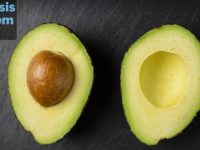A short post today dedicated to debunking a popular food myth: the dangers of canola oil. For whatever reason, canola oil is subject to a great deal of internet hate—despite having an extremely healthy nutrient profile—and you’d be wise to know the truth.
Let’s start by looking at the scare tactics employed:
Erucic Acid Is Toxic!
Before the 1970s, you could not buy canola oil as a cooking oil in the United States. That’s because prior to this decade canola oil was produced from rapeseed plant cultivars that contained high levels of erucic acid, and because high levels of erucic acid could be damaging to the heart (based on rodent studies). That all changed in the 1970s, however, because scientists had figured out how to breed the erucic acid producing genes out of rapeseed!
Today, canola oil (the rechristening of rapeseed oil, for obvious reasons) contains less than 2% erucic acid, which is a perfectly safe amount. The primary fat that replaced that erucic acid is oleic acid, the same fat that makes olive oil so heart healthy. Unlike olive oil, though, canola oil can be heated to far higher temperatures before smoking, which makes it far superior as a cooking oil.
Oh, and by the way, prior to the development of low-erucic acid canola, many countries around the world still used rapeseed oil as a cooking oil (along with other high-erucic acid oils like mustard oil). The pressure to remove erucic acid was due to an overabundance of caution, none of which was based on human evidence. We still don’t have any real evidence on the risks of erucic acid in humans (nor are we likely to get any at this point).
My point is this: those who point to the dangers of erucic acid in canola oil are going two layers deep in their fearmongering. First, they’re ignoring the fact that canola oil has virtually no erucic acid. Second, they’re ignoring the lack of human evidence that erucic acid, in amounts common to a human diet, can cause actual heart harm. Ridiculous.
They’re GMO!
I’m not going to dig into the rabbit warren of GMO debates—this isn’t really place, and there’s no way to keep this post short while also giving enough of a scientific background on GMOs to demonstrate their comparable safety to other methods of agriculture. Instead, I’m going to briefly discuss why it really doesn’t matter in the case of canola, at least so far as your health is concerned.
In the anti-GMO camp, there is a popular sentiment that GMOs can be harmful to your health because they could produce “novel proteins”—meaning proteins that have hitherto never been encountered in food. These novel proteins could induce allergies, or perhaps act in even more nefarious ways. Either way, it’s a health risk some feel is too great.
(This idea of “novel proteins”, by the way, is patently incorrect, especially considering that GMOs by and large use genes from other food crops! In other words, we’re already eating those proteins from other foods in our diet.)
In the case of canola oil, however, there’s literally nothing to worry about because canola oil is a refined oil. Refined oils are completely stripped of everything except the fatty parts, meaning there are zero proteins in the final product!
If that isn’t convincing, then consider that individuals with peanut allergies—which cause predictable, immediate, and severe reactions, unlike any GMO to date—can safely consume refined peanut oil. They cannot consume cold-pressed or other unrefined versions, but refined peanut oil has been stripped of all the allergenic proteins, making it safe even for those with a life-threatening allergy.
Like refined peanut oil, canola oil will be protein-free—so even if you did worry about the potential health effects of GMOs, there’s still no reason to worry about canola. It’s just the fat with none of the protein.
It’s Safe, It’s Healthy, It’s Cheap
Canola oil is the world’s sexiest oil—you’re not going to dress any salads in it, or use it as a topper for bread. It is a safe, healthy, and cheap cooking oil, however, and that’s an important duty in its own right.
While I do recommend using minimal amounts of added oil when you cook, it’s important to choose oils that fit the task. If you’re stir-frying or sauteeing, you need an oil that can withstand high heats, and none of the “sexy oils” are up to that task. Canola is.
The best time to use a cooking oil is when you’re cooking. The best time to use a flavoring oil is when you’re done cooking. The best time to debunk bad science on good oils is now, so spread the word!















Coconut oils pretty damn sexy and great for high temp cooking. You can get it steamed too if you dont want everything to taste of coconut.
Really finding your articles interesting as a new climber and having been interested in nutrition for some time now. Thanks
Great post. I’m facing many of these issues as well..
You’re so interesting! I don’t believe I have read through
anything like this before. So good to discover somebody with
some original thoughts on this topic. Really..
thanks for starting this up. This website is one thing that is
required on the web, someone with a little originality!
This is the right website for anybody who wants
to understand this topic. You understand so much
its almost hard to argue with you (not that I personally will need to…HaHa).
You certainly put a brand new spin on a topic that’s been written about for decades.
Wonderful stuff, just wonderful!